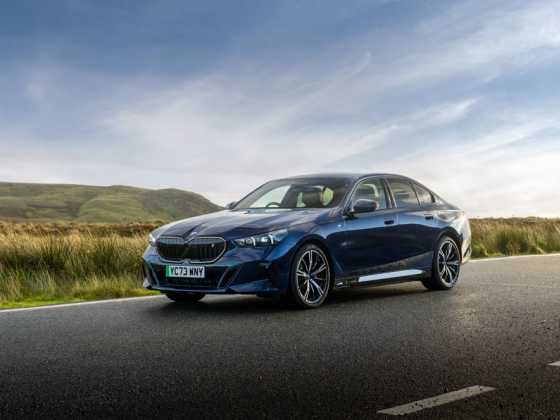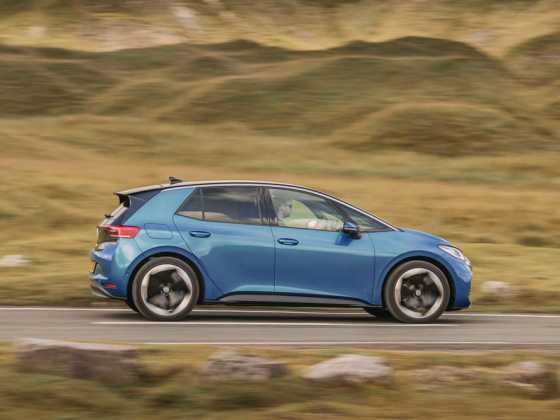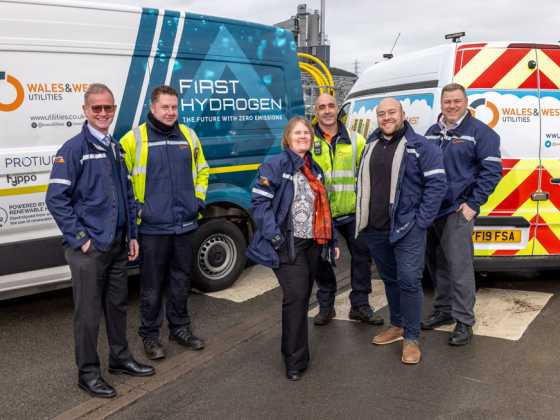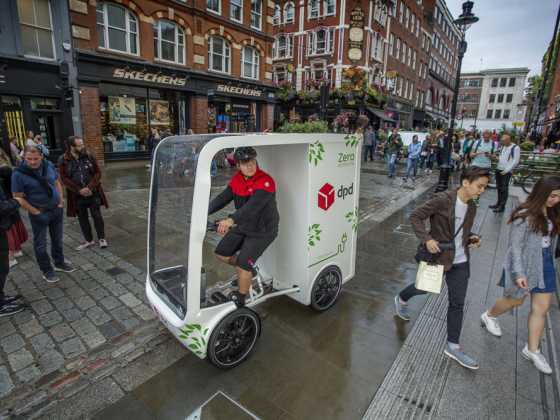SMEs: Are electric vehicles your next logical step?

While upfront costs of electric vehicles may be off-putting for small firms, James Court, CEO of EVA England, highlights ways to offset these costs – and the additional benefits EVs can bring
On a recent panel, I stated, with no particular proof, that businesses are more logical than people. My thinking behind this was in reference to range anxiety, operating costs and more broadly, the resistance to change.
Humans need convincing to make a shift away from what they know, even if the benefits are numerous. This is hardwired into us; the fear of loss is greater than the power of gain.
This is all well-established, so I feel comfortable that at least one part of my bold statement was correct. I knew that much from my psychology A-level, but what about the second part, that of companies being more logical?
This, it must be said, is much less accurate. I could defend my spur of the moment declaration (67 per cent of facts are made up after all), on the basis that as humans are so illogical, businesses, even if by a whisker, must be more analytical, right?
Looking at the market, this appears true on the surface. I worked to set up the UK Electric Fleets Coalition in 2020. This was composed of some of the biggest fleets, such as Royal Mail, DPD, Unilever, Mitie, BT and IKEA, all signing up to EV targets.
For large companies, this makes huge amounts of sense. For many, they are trying to get the infrastructure in place before the rush of the 2030 phase-out deadline for ICE cars and vans. Others have looked at the lifetime operating cost and realised that EVs are already more efficient. There is already a burgeoning market of software logistic firms planning the optimum use of fleets, helping businesses not only make the transition to EVs, but driving even more efficiency in their operations.
In fact, for many large companies now, it is not the fear of change that is holding them back, but the ability to purchase the vehicles in large enough numbers. Companies are rumoured to be gazumping rivals in the chase for bulk buys. This was the case even before covid, war and microchip shortages. The demand for EV vans is huge, it’s the lack of choice and the sheer ability to get your hands on one that is holding back the transition.
What about small firms?
So where do SMEs fit into my ‘logic’ thesis, what with them being part human, part business.
Let’s focus on the human element first. EVs are great. I would say that, but really, they are. They are quieter, which is really noticeable. The constant drone of a diesel engine is exhausting, even if you’ve never thought about it or noticed it. Driving an EV is like that blissful moment when the air conditioning unit turns off in an office. You hadn’t noticed it, but suddenly you feel the difference.
EVs are also much faster off the blocks, but I’m not going to encourage that or use it as a selling point. I’ll just say that you can beat most cars at the green light and leave it at that.
To the business side, for many of you, you probably don’t have a logistic department crunching the data, nor the ability to balance a large fleet to adjust for marginal gains, but the basics are that EVs are cheaper to run. This remains true even with the increase in electricity costs. The RAC released a report this month showing that while charging rates have increased, by roughly 21 per cent; petrol (25 per cent) and diesel (30 per cent) have risen by more. This is not considering that charging is dramatically cheaper in the first place, and costs per mile dwarf that of liquid fuels, especially if you have access to private charging (i.e., home or office charging).
Upfront costs
But what about upfront costs? This, admittedly, is a factor. The difference can be between 3,000 and up to over 10,000 on similar models. Yet there are plenty of ways to offset these costs. The first is the reduction in running costs, not just in fuel, but also in servicing. EVs tend to be more reliable and have fewer ‘things’ to go wrong.
There remains a government grant, however this has been reduced, and will keep on reducing. As of writing, for cars this is up to 35 per cent, capped at £1,500, for mopeds – up to 35 per cent, capped at £150, and for motorcycles - up to 35 per cent, capped at £500. For small vans, it’s up to 35 per cent, capped at £2,500, and for large vans, it’s up to 20 per cent, capped at £5,000. This helps, but you will have to be quick; the grants can be cut at any time and with no notice.
There are also tax benefits, if you are buying outright, you can claim a 130 per cent super deduction for new EVs. There are also favourable Benefit-in-Kind breaks, which are substantial if you are a company car driver. However, these too are being reviewed, and are currently set until only 2025. We are anticipating a change in those rates at the Autumn budget, and the EVAE will be campaigning to keep an attractive BIK rate, especially in comparison to ICE vehicles.
Lastly, there are salary sacrifice schemes. This is particularly attractive to staff members and can be seen as a real perk of the job. If your company signs up to a salary sacrifice EV scheme, staff members can apply for a personal lease, with the payment coming pre-tax, saving the difference of the tax rate you pay, akin to the “cycle to work” scheme, meaning you can save up to 45 per cent.
My advice to SMEs would be the same advice I give to humans. Consider an EV when you are next looking to change vehicles. EVs are not yet for everyone, and while I am confident about infrastructure and cost being universally ready, way in advance of 2030, it may be that the maths don’t stack up. But for many of you, EVs may already be logical.
James is CEO of EVA England, the membership body representing EV drivers. James previously worked in the Cabinet Office on the UK’s COP26 transport policy, helped set up the Climate Group’s UK Electric Fleets Coalition (UKEFC), and was Director of Policy and Communications at the Renewable Energy Association.
Image shows Citroën’s MY AMI CARGO.






